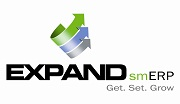 If you think carefully enough you
will come to realize that ERPs or Enterprise Resource Management solutions were
always meant to be accompanied by CRM software. Having said that ,we must
concede erp software for exports has proved to be invaluable allies of businesses on their own. But the magic
works best when both are part of one software suite and their true potential
unleashed.
If you think carefully enough you
will come to realize that ERPs or Enterprise Resource Management solutions were
always meant to be accompanied by CRM software. Having said that ,we must
concede erp software for exports has proved to be invaluable allies of businesses on their own. But the magic
works best when both are part of one software suite and their true potential
unleashed.
These days, data is being generated
in huge amounts as we speak and write. This has translated into an environment
for businesses that far more complex for their owners than ever before. They
have to meet the challenge of being able to take correct action and they have
to do it fast. Otherwise, their business
prospects take a turn for the worse both in terms of short and long term.
Customers are faced with an exploding array of choices and are more demanding.
Businesses have to respond to their demands or face obliteration. Competition takes the center-stage as hundreds
of companies vie for the same money of individual consumers. But that is a
natural consequence of the consumer is king model.
So, in order to prevent your
business out of gears when that happens, it is far better to opt for a modern and flexible solution that not only has
modules that may be customized and scaled easily but has a built-in CRM as well.
That is truly the best software for export import business.
All this has resulted in more and
more companies realizing that an ERP with a built-in CRM solution is the best
option open to them. Today even small and medium-sized
businesses are turning to such a breed of ERPs in order to better their
business processes. The magic of automation and enhanced management is in full
bloom when ERP and CRM are inherently integrated.
ERPs perform the function of
management and automation of back-office tasks while at the same time
streamlining their business operations, CRM's look after the front-office
machinery that is responsible for interactions with customers, management of
the whole pipeline of sales, provide support, conduct up-sell activities, track
information regarding customers and come up with dashboards and reports on the
whole data collected through their system. CRM's are of great use in simplifying
and standardizing all such activities.
But personally, obviously, for valid reasons, the concept of
mashing up two different products from two distinct vendors does not seem to me
to be that great of an idea. The different products make use of different architectures
and the absence of any pre-set standard when it comes to exchange and
interaction of data makes them unwieldy
and unreliable. Not only does such a solution prove to be prohibitively costly
but makes the whole process unnecessarily complex.
It is a risky decision and I as a business owner am highly unlikely to make such an unwise
move. Sometimes companies claim that their solutions have integration
compatibility but future updates may break such “integration's” and make the whole system
inoperable.

No comments:
Post a Comment
Thank you for your Comments.
ExpandERP Team